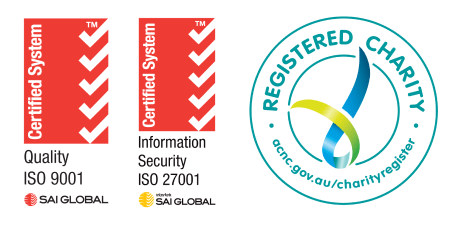Date
Cost
Available to
Continuing Professional Development
2 RACGP CPD hours - educational activities
Join NWMPHN and Women's Health in the North for this professional development training designed to increase access to culturally, socially, and clinically appropriate health services and support for women and girls from communities that practice female genital cutting (FGC).
Female genital cutting or circumcision (FGC) is a cultural practice that violates the human rights of women and girls. Australia is home to increasing numbers of women from countries that practice FGC. The Family and Reproductive Rights Education Program (FARREP) is a Victorian statewide health promotion program that works with communities which have been exposed to cultural practices in their country of origin that have led to poor sexual and reproductive health outcomes.
FARREP professional development training provides a capability-building opportunity for health professionals, including general practitioners, nurses, and midwives. This training focuses on the social, cultural and clinical aspects of FGC to build confidence, capacity and expertise of services working with women and girls impacted by or at risk of the practice.
Speakers:
Intesar Homed is a health promotion officer at Women’s Health In the North and is responsible for delivering the Family and Reproductive Rights Education Program (FARREP). Intesar works in a proactive way in an innovative community organisation that provides a diverse range of programs and experiences to the targeted community. Intesar works with a wide range of women, girls, health professionals, and local governments. She is committed to educating the community about sexual and reproductive health and passionate about making a difference to women’s health and wellbeing.
Shukria Alewi is one of health promotion coordinators on the FARREP program at GenWest. Shukria has been working there for 14 years. Her role involves working with health professionals and services to create and deliver professional development training to build their capacity and ensure they provide culturally appropriate services to women in the community. In the past, Shukria was working with women and young people in the community to develop and deliver culturally appropriate sexual and reproductive health programs.
Marie Jones is a Nurse Practitioner and midwife at the Royal Women's Hospital. She has a post graduate degree in Public Health (sexual health), and is Associate Nurse/Midwife Unit Manager and Coordinator of the African Women's Clinic. Marie began her nurse training St Vincent’s Melbourne, and then did midwifery training at the Royal Women’s Hospital. Finding her niche in women’s health, she has worked at the Women’s for well over 30 years. In that time she has worked in many areas, including the birth centre, antenatal and postnatal wards, special care nurseries, antenatal and gynaecology outpatient clinics, and emergency. Marie now works in the Women’s health clinics, clinically three days a week and one day a week for follow up.
Dr Joanne Gardiner is a GP with a longstanding interest in refugee health. She is a founding member of the RACGP Special Interest Group in Refugee Health, and is a member of the Victorian Refugee Health Network and the Refugee Health Network of Australia. She has been involved in education and advocacy in this area for many years.
Learning outcomes:
- Demonstrate increased knowledge of FGC, including appropriate terminology, relevant legislation and the short and long-term implications of the practice.
- Describe how to provide culturally sensitive support and services to women and girls impacted by or at risk of FGC, including appropriate referral pathways.
- Demonstrate enhanced awareness of existing resources and clinical guidelines relevant to supporting the sexual and reproductive health of women and girls impacted by or at risk of FGC.






